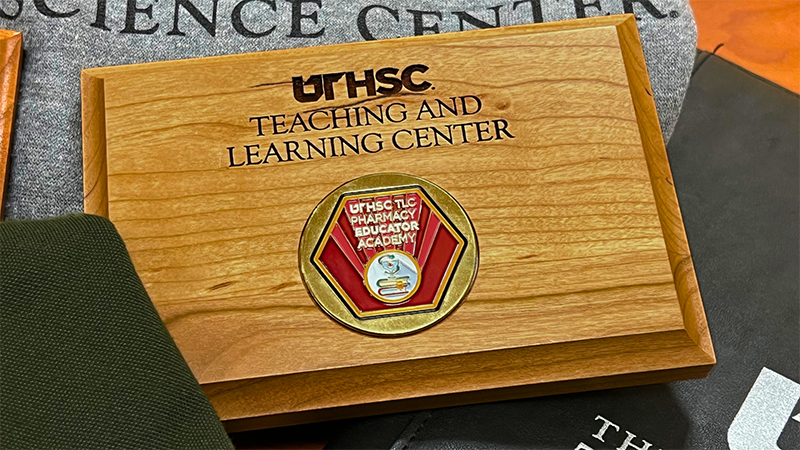Pharmacy Educator Academy
Overview
The Pharmacy Educator Academy program has been designed by experts at the University of Tennessee Health Science Center’s Teaching and Learning Center. In this program, participants will take part in nine monthly modules created to support pharmacy residents in both defining and pursuing their goals as educators in both clinical and didactic settings. Each monthly module focuses on a new topic and includes mini assignments for self-paced learning and a live session for hands-on guidance with instructional consultants.
Program Objectives
At the end of the program, participants will be able to:
- describe their teaching philosophy using learning theory, best practices to support learning, and active learning strategies;
- apply effective teaching & feedback strategies in clinical and didactic settings;
- utilize educational technology tools for instruction and presentations.
Topics
August - Welcome & Becoming a Pharmacy Educator
September - Evidence-Based Learning
October - Giving Effective Presentations
November - Supportive Learning Environments
January - Qualities of a Good Preceptor
February - Teaching with Technology
March - Giving Effective Feedback
April - Active Learning
May - Writing a Teaching Philosophy
Schedule
Each month of the Pharmacy Educator Academy consists of the following schedule:
Weeks 1-2: Pre-work assigned & due
Week 3: Live session
Week 4: Post-session Portfolio assignment due
Portfolio
Each resident will complete a Teaching Portfolio that consists of the following items:
- Big Dreams as a Pharmacy Educator Reflection
- Evidence-Based Instruction Mapping Plan
- Draft Presentation Slides
- Supportive Learning Environment Plan
- Teaching Persona & Reflection
- Teaching with Technology Asynchronous Module Completion Certificate
- Feedback Plan using Technology
- Active Learning Teaching Tool
- Teaching Philosophy
These portfolio items have been designed to support residents in both clinical and didactic instruction. These items develop frameworks (supportive learning, active learning), build skills (giving feedback, giving presentations, using educational technology), and they offer opportunities for reflection and growth as educators (big dreams, teaching persona, teaching philosophy). Residents must complete all portfolio items and pre-work to earn their certification.
Contact Information
For inquiries about course content or structure, please contact Federico Gomez-Uroz Horst (fgomezur@uthsc.edu) or Dr. Tom Laughner (tlaughne@uthsc.edu).
To learn more about UTHSC’s Teaching and Learning Center, please visit our website at: https://www.uthsc.edu/tlc/.

